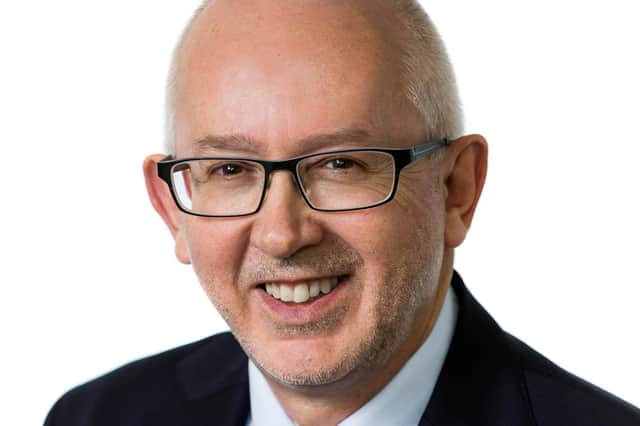Scotland can be proud of Covid response from scientific community - Professor Philip Winn


We designed a funding programme, providing over £335,000 to 20 projects investigating the disease, spread across Glasgow Royal Infirmary, the Scottish National Blood Transfusion Service and the Universities of Edinburgh, Glasgow, Aberdeen, St. Andrews and Strathclyde. One year on, we can reflect on the incredible work of the researchers we funded.
They addressed important questions. Which proteins in the SARS-CoV-2 virus trigger an immune response? How does the disease progress? How does the virus affect different organs of the body? Our research suggests that it might be possible to quantify proteins involved in scarring of the lungs, which could help identify the most at-risk people much earlier. Can we develop more accurate testing, combating outbreaks faster? Researchers are developing technologies to improve identification of the virus’s genetic material in a patient. The hope is that this will lead to a quicker, more effective test that could replace PCR testing.
Advertisement
Hide AdAdvertisement
Hide AdEffective communication is critical for the delivery of health care, so we also supported researchers who assessed the information needs of the community and the effectiveness of messaging such as ‘wash your hands’ and ‘stay inside’. Their findings provide guidance for how we can better connect with vulnerable groups, helping to design more effective communication systems during future waves of the pandemic, saving more lives.
Researchers have investigated the experiences of NHS staff in critical care. How can we best support staff, now and in the future? Teamwork, camaraderie, pride and fulfilment all work to mitigate the stress and isolation felt by frontline staff. These findings and personal testimonies are key to creating effective physical and mental health support systems. It will let NHS staff deliver the best care whilst also being cared for themselves.
The challenges thrown at us by this virus were intense, but Scotland can be proud of the response made by the scientific community. The research produced will help shape our understanding of this virus and how to detect, treat and prevent its spread.
At Medical Research Scotland, our main funding programme supports promising research scientists through the provision of more than 20 PhD studentships every year in Scottish Universities, each one across four years in collaboration with an external partner organisation. The awards deliver vital research which has clear benefits to the wider world.
The pandemic highlighted how the approach to health and well-being must be holistic. The delivery of treatment programmes – from surgical and pharmaceutical to nursing and counselling – must be supported by quick and effective diagnostics to get the right treatments to the right patients as promptly as possible. All of this sits in the context of integrated medical, hospital and social care. Medical Research Scotland will maintain its commitment, not just to delivering high quality research, but to educating and training the next generation of scientists capable of solving problems and delivering the best outcomes across every aspect of health and well-being.
If you would like to help contribute to our efforts at Medical Research Scotland, please visit our website here. If you are considering applying for funding, please visit here.
Professor Philip Winn is Chair of Medical Research Scotland, Emeritus Professor of Neuroscience at the University of Strathclyde, in the Strathclyde Institute of Pharmacy & Biomedical Sciences.
Comments
Want to join the conversation? Please or to comment on this article.